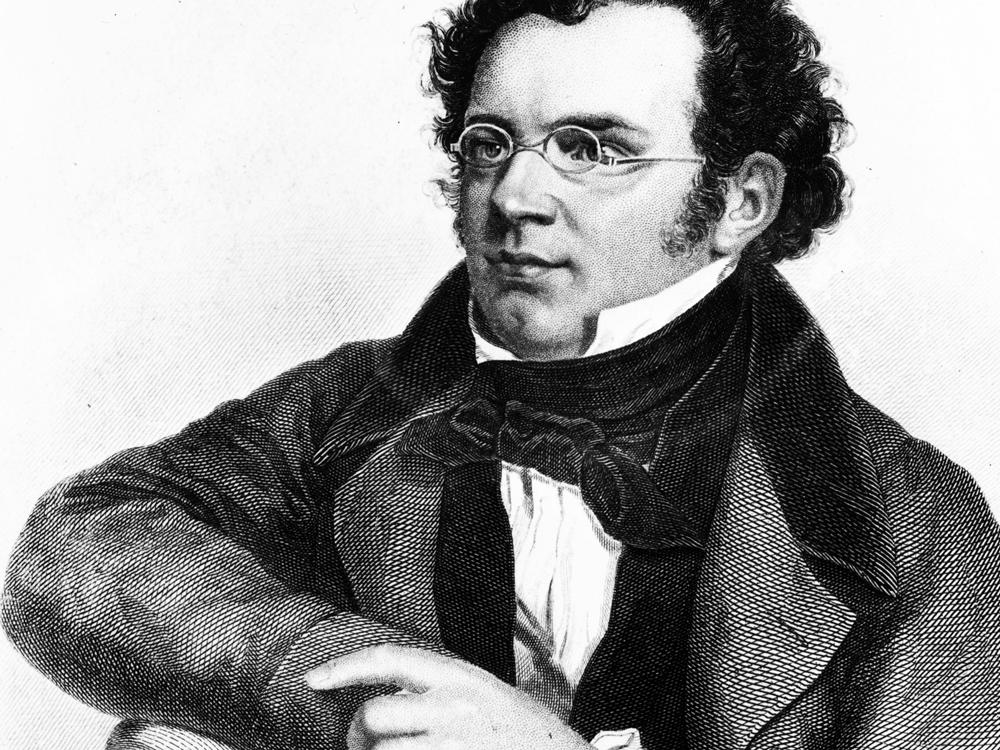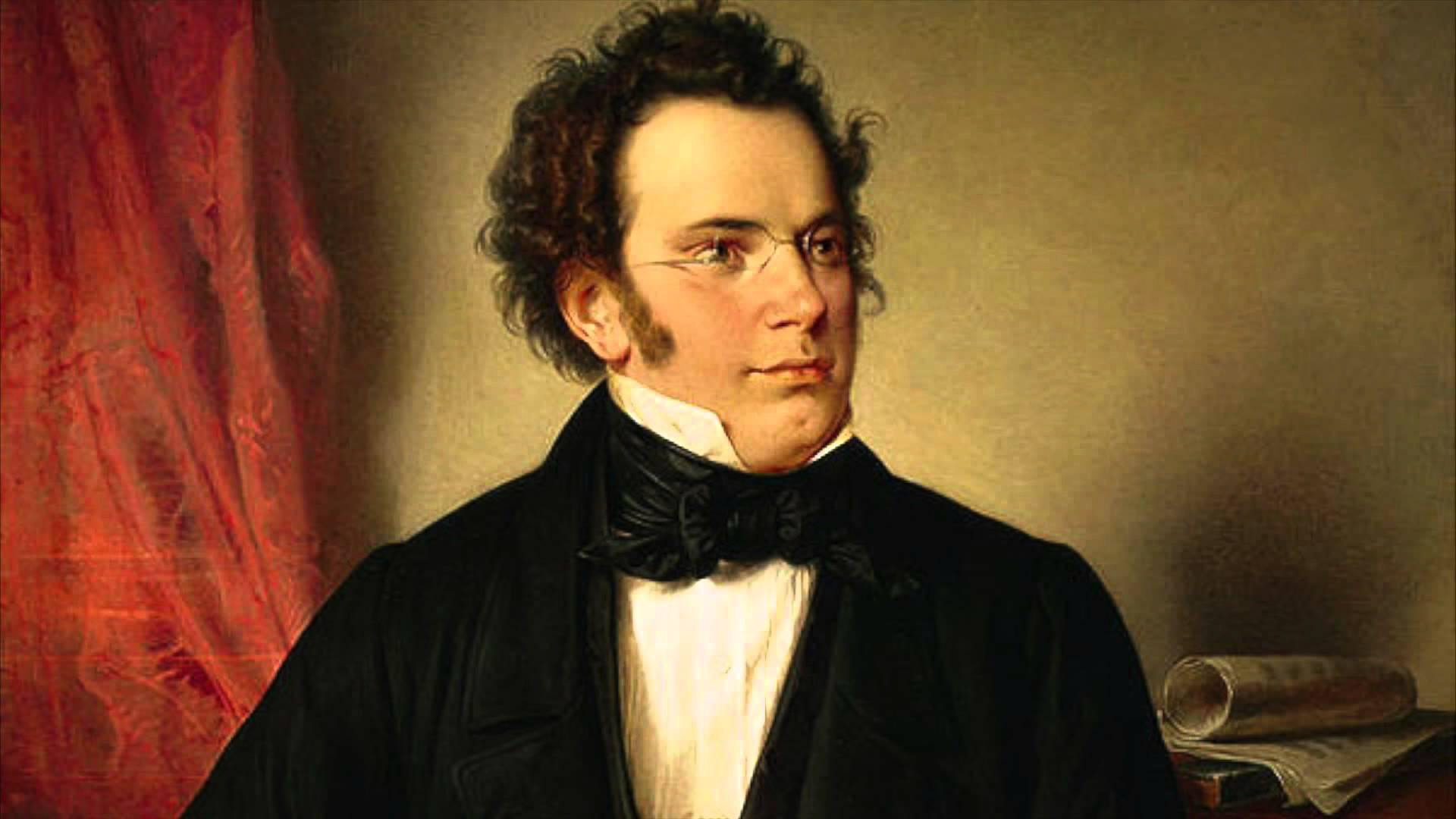

Schubert´s early essay in chamber music is noticeable, since we learn that at the time a regular quartet-party was established at his home "on Sundays and holidays," in which his two brothers played the violin, his father the cello and Franz himself the viola. Through these early works Salieri got aware of the talented young man and decided to train him in musical composition and music theory.

A fantasia for piano duet (D.1, using the catalog numbers by Otto Erich Deutsch), thirty-two close-written pages, is dated April 8- May 1, 1810: then followed, in 1811, three long vocal pieces (D.5 - D.7) written upon a plan which Zumsteeg had popularized, together with a "quintet-overture" (D.8), a string quartet (D.2), a second pianoforte fantasia and a number of songs.

Meanwhile his genius was already showing itself in composition. It was at the Convict, too, that he first made acquaintance with the overtures and symphonies of Mozart and between them and lighter pieces, and occasional visits to the opera, he began to lay for himself some foundation of musical knowledge. Many of the most devoted friends of his life were among his schoolfellows: Spaun and Stadler and Holzapfel, and a score of others who helped him out of their slender pocket-money, bought him music-paper which he could not buy for himself, and gave him loyal support and encouragement. Here he remained until nearly seventeen, profiting little by the direct instruction but much by the practices of the school orchestra and by association with congenial comrades. In October 1808 he was received as a scholar at the Convict, which, under Antonio Salieri's direction, had become the chief music school of Vienna, and which had the special office of training the choristers for the Court Chapel. The unsatisfactory character of his early training was the more serious as, at that time, a composer had little chance of success unless he could appeal to the public as a performer, and for this the meager education was never sufficient. Holzer's lessons seem to have consisted mainly in expressions of admiration, and the boy gained more from a friendly joiner's apprentice, who used to take him to a neighboring pianoforte warehouse and give him the opportunity of practicing on a better instrument than the poor home could afford. At seven, having outstripped these simple teachers, he was placed under the charge of Michael Holzer, the Kapellmeister of the Lichtenthal Church. His father taught him the rudiments of the violin, his brother Ignaz the rudiments of the pianoforte. His musical education began about the same time. At six he entered the Himmelpfortgrund school where he spent some of the happiest years of his life. He was also a fair amateur musician, and transmitted his own measure of skill to his two elder sons, Ignaz and Ferdinand.Īt the age of five Schubert began to receive regular instruction from his father. The father, a man of worth and integrity, possessed some reputation as a teacher, and his school, on the Himmelpfortgrund, was well attended. 1796), Franz, and a daughter Theresia (b. Of their fifteen children (one illegitimate child was already born in 1783) ten died in infancy the others were Ignaz (b. His father, Franz, son of a Moravian peasant, was a parish schoolmaster his mother, Elizabeth Vietz, had before her marriage been a cook in a Viennese family. Schubert was born in the Himmelpfortgrund, a small suburb of Vienna.


 0 kommentar(er)
0 kommentar(er)
